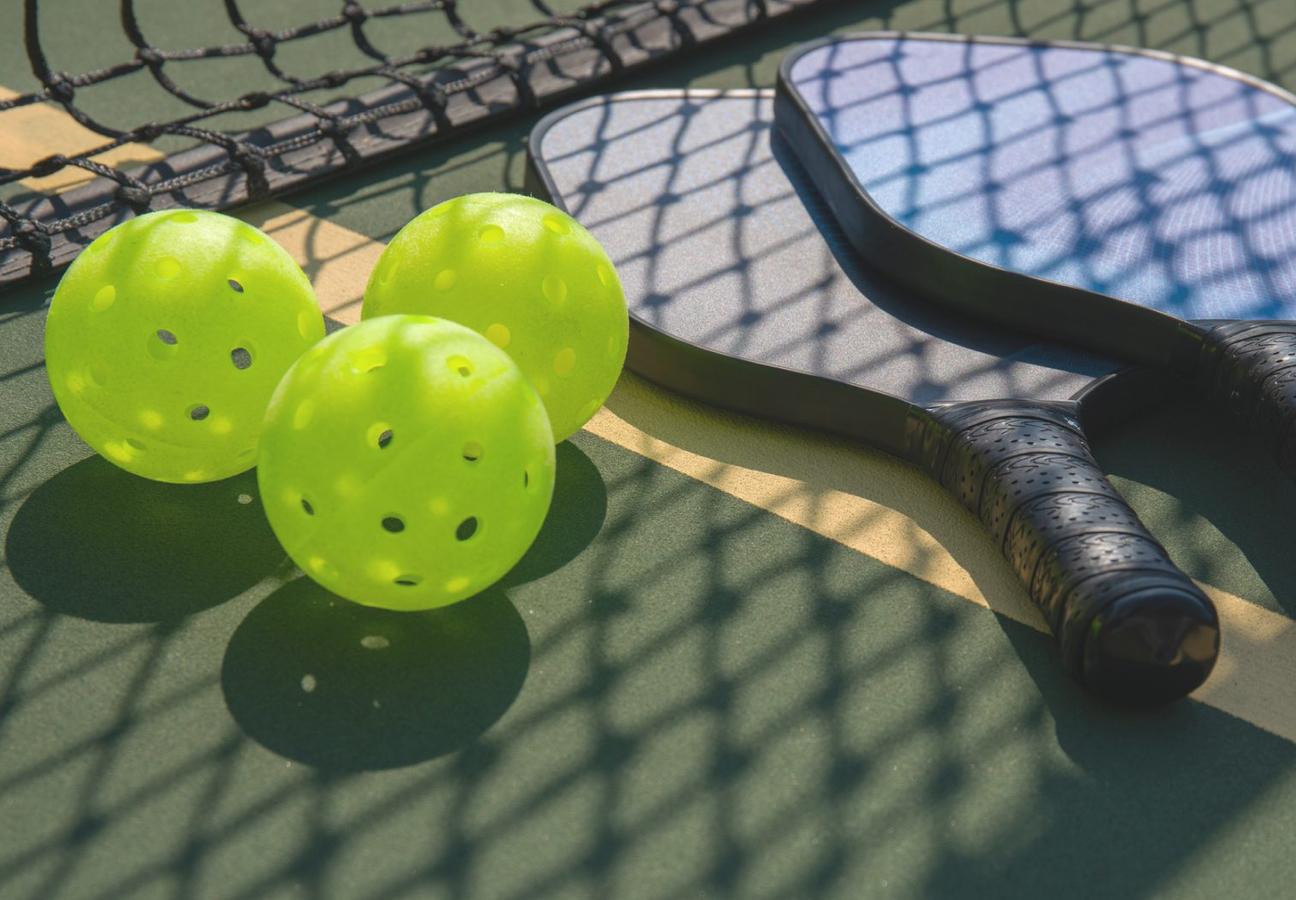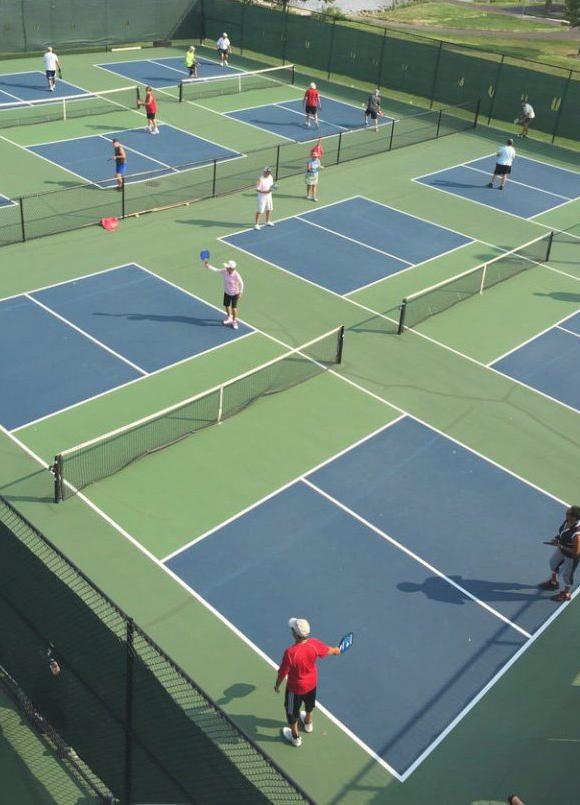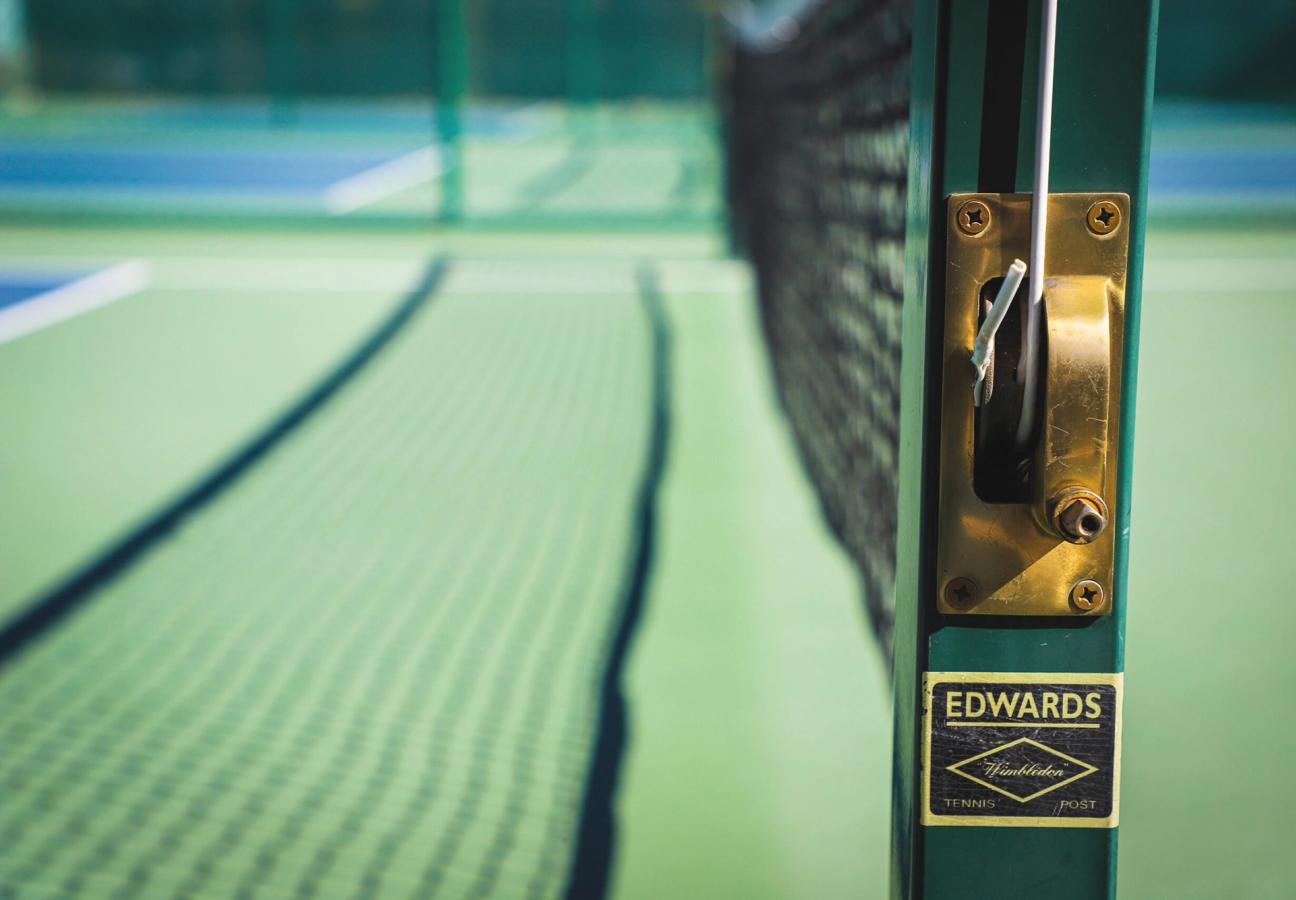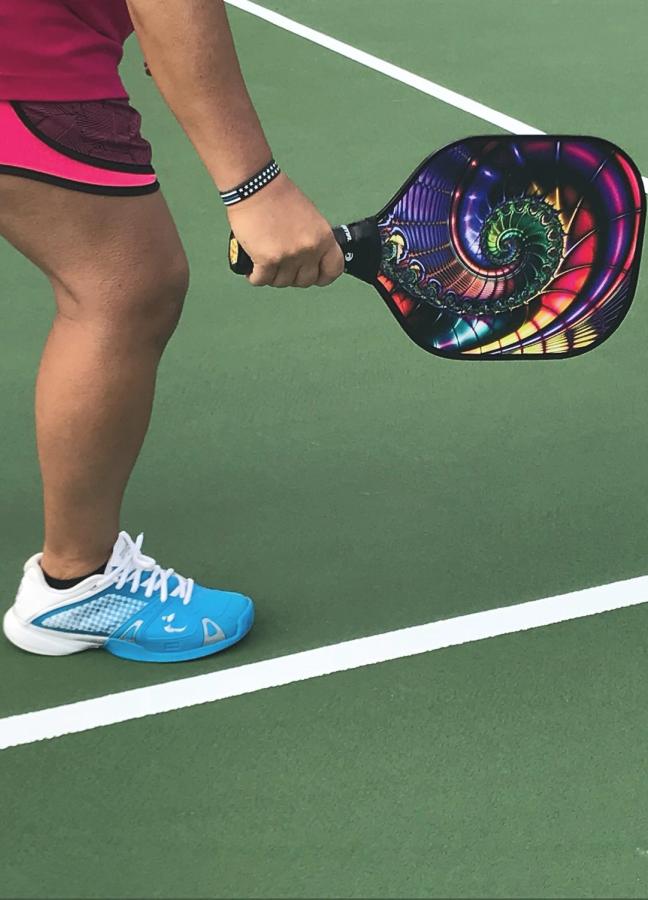
Pickleball is the game of the summer
Introducing the obscure American racket sport
Words: Jack Napier
It’s the summer of 1965. We’re on Bainbridge Island, Washington, at the residence of Joel Pritchard, a man who in twenty-seven years’ time, on his path to retaining the office of Lieutenant Governor of Washington, will bleed over 148,000 votes to a candidate who has legally changed his name to Absolutely Nothing.
But that’s not important now, because this is 1965, not 1992. This is the year that Pritchard and his buddies Bill Bell and Barney McCallum will return home from a long summer’s day on the golf course to find their children bored and lacking in activities. This is the year these three pioneers will invent pickleball.
Pickleball is a silly name for a funny-looking game that lends itself to articles full of bad puns. It’s also the fastest growing sport in the USA and is enjoying early-stage growth in the UK, where it has only been introduced much more recently and where it appears to have established another hardcore cult-like following.
But what is it, you ask? It is commonly described as a cross between tennis, badminton and table tennis. As is the case in most racquet sports, a participant attempts to hit a ball over a net and wins a point when their opponent is unable to return the ball within the parameters of the court.

Pritchard et al came up with the sport by cobbling together the materials they could play with in lieu of the shuttlecock that was missing from their badminton set. A perforated plastic ball — a wiffle ball, in the American lexicon — was fished out from somewhere, net heights were tinkered with, court dimensions were gradually established and wooden paddles were developed, along with rules.
Where pickleball derives its name from isn’t entirely clear and is, by my (over-)reading, a slightly contentious issue. Some say Pickles was the name of a beloved family dog, who was known to raid the Bainbridge court and steal the ball between points. According to the website of the USA Pickleball Association (USAPA), however, Joan Pritchard — wife of Joel — has gone on record in contradicting the probable myth of the canine.
Indeed, she claimed to have named the sport herself because “the combination of different sports reminded [her] of the pickle boat in crew where oarsmen were chosen from the leftovers of other boats.” Wikipedia, along with others, goes one step further in claiming that in fact Pickles the dog wasn’t even “on the scene for two more years”, but I’m unable to find the source for that part of the quote. Nonetheless, I’m minded to take Mrs Pritchard’s word, and either way the moniker is here to stay.
Like its name, it appears the game won’t be going away anytime soon. According to the Sports and Fitness Industry Association (SFIA), pickleball grew to 4.2 million US-based players in 2020, representing a huge 21.3% growth from the 3.46 million who had been recorded as playing in 2019.

This growth means US pickleball now has around a fifth of the number of participants US tennis has. Knowing what we all now know about the daily drudgery of Covid-19, it is obvious the pursuit of new outdoors activities has had something to do with this sudden explosion and celebrities like Ellen DeGeneres taking up the sport as a pandemic past-time has only added fuel to the wildfire. But it’s also worth pointing out that even previous to the coronavirus, pickleball had experienced a strong 9.7% growth over three years.
With the rise of pickleball has come an influx of business interest. While pickleball equipment had until recently been manufactured and sold by small specialist outfits, major sporting goods companies are now piling in to take their cut.
“Pickleball is a silly name for a funny-looking game…”
Chris Evon, co-founder of The US Open, the biggest and most reputable pickleball tournament in the world, says people are describing this growth area as the “Wild West”. While there used to be a handful of manufacturers, there are now “over two hundred paddle companies, maybe even a lot more”.
Evon describes the pickleball manufacturing and retail space as already feeling “saturated”, adding that “something’s going to give and it’s going to balance out in the next five years”. It is likely that this ‘balancing out’ will take much the same form as the homogenisation of the British high street, with big companies winning out by virtue of endless capital and bullying their smaller competitors into submission: “Only the strong manufacturers will survive and some of the smaller companies that don’t have good business plans will be gobbled up, maybe through mergers and acquisitions.”

Among the large companies jumping aboard are Head, Prince, Babolat, Gamma and Franklin. While they represent a challenge for the many manufacturers that predate their involvement in the sport, they represent huge opportunity for the growth of pickleball participation.
Big companies bring both exposure and esteem to the game, particularly for a younger generation whose imagination pickleball has previously struggled to capture. According to SFIA’s 2020 annual report, more than 20% of pickleball participants in the US are over 65, which is unsurprising considering the beating heart of its success is within the retirement communities of Florida. It would be a “gamechanger”, Evon says, to get young people involved, and could propel the growth rate to even headier heights.
Another big step for pickleball in its pursuit to reach more homes and inspire a greater number of the young and old to take it up, is its first ever appearance on television as a live sport, which happened at the US Open in April this year. CBS Sports Network has covered the event since its inception in 2016, but this edition was the first to be broadcasted live.
Ben Johns, the world number 1 ranked men’s singles and doubles pickleball player, says the live broadcasting of the US Open represented the moment the sport overcame a “big hurdle”, and sees TV exposure as “the biggest thing that will propel the sport”, not least because of the sponsorship it draws.

Johns, a University student who also runs two businesses off the back of his involvement in the game, represents the transition of pickleball into its professional era: “A couple years ago it was just fun for me — a hobby… but it’s definitely a real possibility now that you can play full-time and make a decent living out of it.”
Apparently the top pickleball players can now earn up to $200,000 a year, mainly through sponsorship deals (Johns is sponsored by Franklin) and coaching engagements, and Johns reckons the sport could become “quite lucrative” over the next five years if it continues to enjoy a similar rate of growth.
While the sport is still very small in the UK, Karen Mitchell, the co-founding director of Pickleball England, believes it will take off in the coming years. Her “audacious goal” is to grow the organisation from 1600 members in 2021 to 25,000 by 2025. Judging by the increasing interest stateside and the relatively small numbers currently playing in the UK, it’s hard to deny that however ambitious Mitchell’s targets may be, they are not without foundation.
More than surprise and excitement at the rate of the sport’s growth, what’s come across from each of the people I’ve spoken to is how compelling pickleball is. Playing the game has been affectionately described to me as “addictive” and like joining “a cult”, with more than one person saying it’s taken over their life, social and professional. It’s apt that between all the talk of sponsorship and broadcasting opportunities, the thing that seems to keep everyone so enthralled by pickleball is exactly what grabbed Pritchard, McCallum and Bell when they first put paddle to ball on Bainbridge Island in 1965: good, honest fun.
Want more obscure sports? Here’s a potted history of Eton’s iconic Wall Game…
Become a Gentleman’s Journal member. Find out more here.
